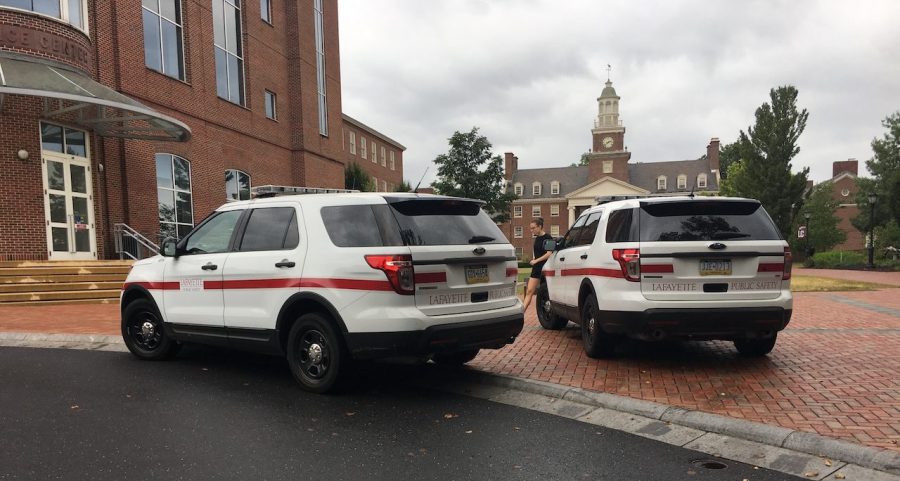Three sexual assaults and three rapes have been reported to the college since Sept. 16. Three of these alleged incidents were reported after Oct. 3.
The most recent allegation of rape was received by public safety on Oct. 12. The location is listed as “on campus” and the date occurred is listed as “unknown.”
Two of these sexual assaults were reported in two days, one on Oct. 3 and one on Oct. 4. The Oct. 4 report listed the location as “on campus” with no specified occurrence date, while the location of the Oct. 3 report is unknown and allegedly occurred in November 2017. All are active public safety investigations and the two sexual assault allegations were reported through the Sexual Assault & Sexual Harassment (SASH) website. The rape reported on Oct. 12 was reported to Educational Equity Coordinator Jessica Brown’s office.
Members of the executive board of Pards Against Sexual Assault, a student group which aims to educate and provide resources to students on sexual assault, said that the time it takes a survivor to report what happened to them varies by person, and there is no time limit on the process.
“The rhetoric around [the allegations against Brett Kavanaugh] has been blaming Dr. [Christine Blasey] Ford for not reporting fast or soon enough,” PASA executive board member Reeve Lanigan ’19 said. “That’s something, as PASA, we want to provide resources and knowledge on that process to our students and our community and…there is no time limit on that experience. That’s solely the right of the individual about when they want to do that and when it’s best for them [to report].”
Lanigan was referring to the allegation against now-Supreme Court Justice Brett Kavanaugh of sexual assault. Ford testified in front of the Senate Judiciary Committee regarding her experience of the alleged incident. The scrutiny placed on Ford about why she didn’t report sooner prompted the hashtag #WhyIDidntReport.
On Twitter, President Donald Trump questioned how bad the alleged attack on Ford could have been given that she had not reported it when she said it occurred. Survivors on Twitter responded with their personal stories about why they didn’t report their incident when it happened, or why they didn’t report it at all.
“It may take a survivor a while to process that trauma, and even to identify what has happened,” Carolyn M. West, psychology professor at the University of Washington, told the New York Times. West “has written and spoken extensively about sexual abuse and trauma,” according to the Times.
“I know there’s mixed feelings about when reports come in, especially when it looks like reports have been increasing,” Brown said in an interview on Oct. 2. “I like to always step back and acknowledge that’s not necessarily a bad thing when reports are coming in, and…statistically, we know these things happen on campus.”
“I see it as a positive when things are reported because that means someone is coming forward and at the very least they’re being made aware of the different options for support,” she added, “and the different options they have to file a report, whether that’s filing a criminal complaint or [that] is requesting an internal investigation through the college.”
Survivors can report what happened to them in a variety of ways, including directly to the college through Brown’s office, directly to public safety, through the SASH website or through the One Pard website. Reporters can remain anonymous.
The Rape, Abuse and Incest National Network (RAINN) states on their website that “[a]mong undergraduate students, 23.1% of females and 5.4% of males experience rape or sexual assault through physical force, violence, or incapacitation.”





















































































































